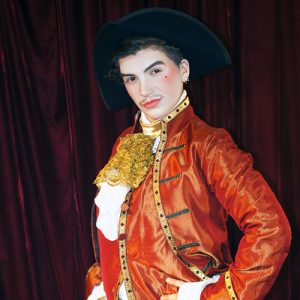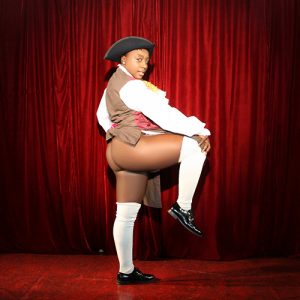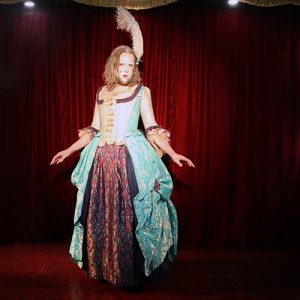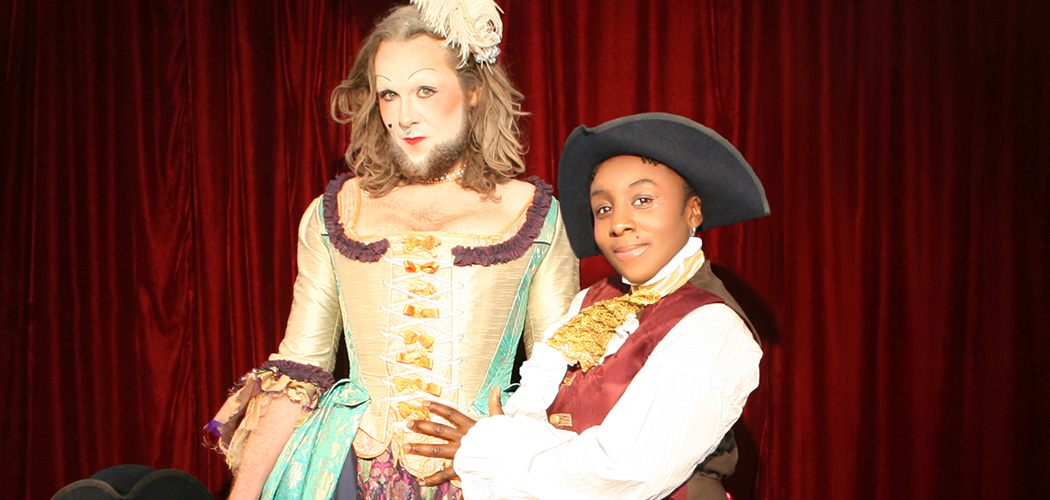On Saturday 1 December the gang from Duckie are launching Princess, a two year project that will explore the lives of queer Georgians of 1700 to 1750. Dave Cross spoke to historian E-J Scott about this fascinating project that aims to find out what the London queer scene was like 300 years ago.

Hey E-J, what’s your role in all of this?
I’m a researcher and I’m responsi ble for looking into overlooked queer histories throughout the UK.
In basic terms what is the Princess project?
Princess is a two year undertaking, a project that’s been funded by the Heritage Lottery Fund as part of Duckie, looking into the Georgian queers and their pleasure gardens from 1700 to 1750. It’s a project that I’m leading but with the help of teams of LGBTQ volunteers who are interested in this largely ignored period of queer history.
How will this research happen?
We’re going to be working with places like the London Metropolitan Archive, The Tate, the V&A and more. We are going to be delving much deeper than any research team has done before, going behind the scenes at these places and using these collections to find examples and records of queer and gender non-conforming people in Georgian Britain.

Why this particular time period?
It’s a most fascinating time. This was really the start of the identities that we live with today. London’s queer subcultures were alive and well during this time with Molly Houses, that is meeting places for gay men, there was cross-dressing at masquerade balls and many more stories and reports of people living or experimenting with non-conforming gender lives and roles.
What kinds or reports have you found?
This was the time of the rise of mass produced newspapers and they were reporting on aspects of social life not just news. These newspapers were reporting on gender non-conforming people, very effeminate men for example and carrying reports on where gay men met each other,
cruising grounds etc, in a way that had never really happened before.
So we might consider this period also the birth of homophobic and transphobic attitudes in the press. The queer cultures were thriving,
but we also saw these negative things as well, and I think there’s a legacy of that still with us today.
So queer history is older than most people think?
I find it inspirational to think that our culture has actually been around for hundreds or years, queer history didn’t start with Gay Lib or even Oscar Wilde, it’s much older. We’ve always been around, we’ve always been partying and we’ve always been playing with gender, none of that is new. It was great that we had exhibitions on the 50th anniversary of partial legalisation, but this is showing that there’s so much more to us and our history.

Molly houses and the like were meeting places for men, was there also a social scene for lesbians at that time?
That’s something that were are going to be really exploring. We know that women, didn’t have the same rights to own property, earn money or even travel in the same way men did, so that was a massive restriction on the kind of social life they could enjoy. A lot of the lesbian stories have been lost and the subject has really been under explored, but we are intending to try and find out as much as we can. We need to look at all the traces and it’s a lesson that this invisibility is a consequence of the way society was organised.
What about people living as a different gender?
There’s loads of evidence of people cross-dressing at Molly houses in really quite elaborate ways, but also there’s many records of men being referred to as she and that some men were living their lives fully as women and in the open sometimes too.
How will the research proceed?
We are going to be working with, and in places like the V&A, where our teams of researchers will get to see and work with some amazing historical items. We will use them to lead us to new discoveries and more information. There will be workshops and history clubs, some will be in London, some along the South coast and some will be at The RVT… we are bringing the museums to the pub.
How do people get involved?
They just need to check out the Duckie website, there’s more information on there if people want to get involved and volunteer.
And finally what is happening at the launch of Princess at Duckie next week?
Princess is launched on Saturday 1 December at Duckie at Royal Vauxhall Tavern at 11pm, with a ‘heritage striptease’ by Azara, Ellie Stamp and Oberon White, choreographed by Azara and a quick chat from me too. We’d really love to see as many Boyz readers there as possible.
duckie.co.uk
Duckie at The RVT, 372 Kennington Lane, Vauxhall, SE11.
New Duckie opening times from Saturday 1 December, 9pm to 4am, £5 before 10.30pm, £8 after.














